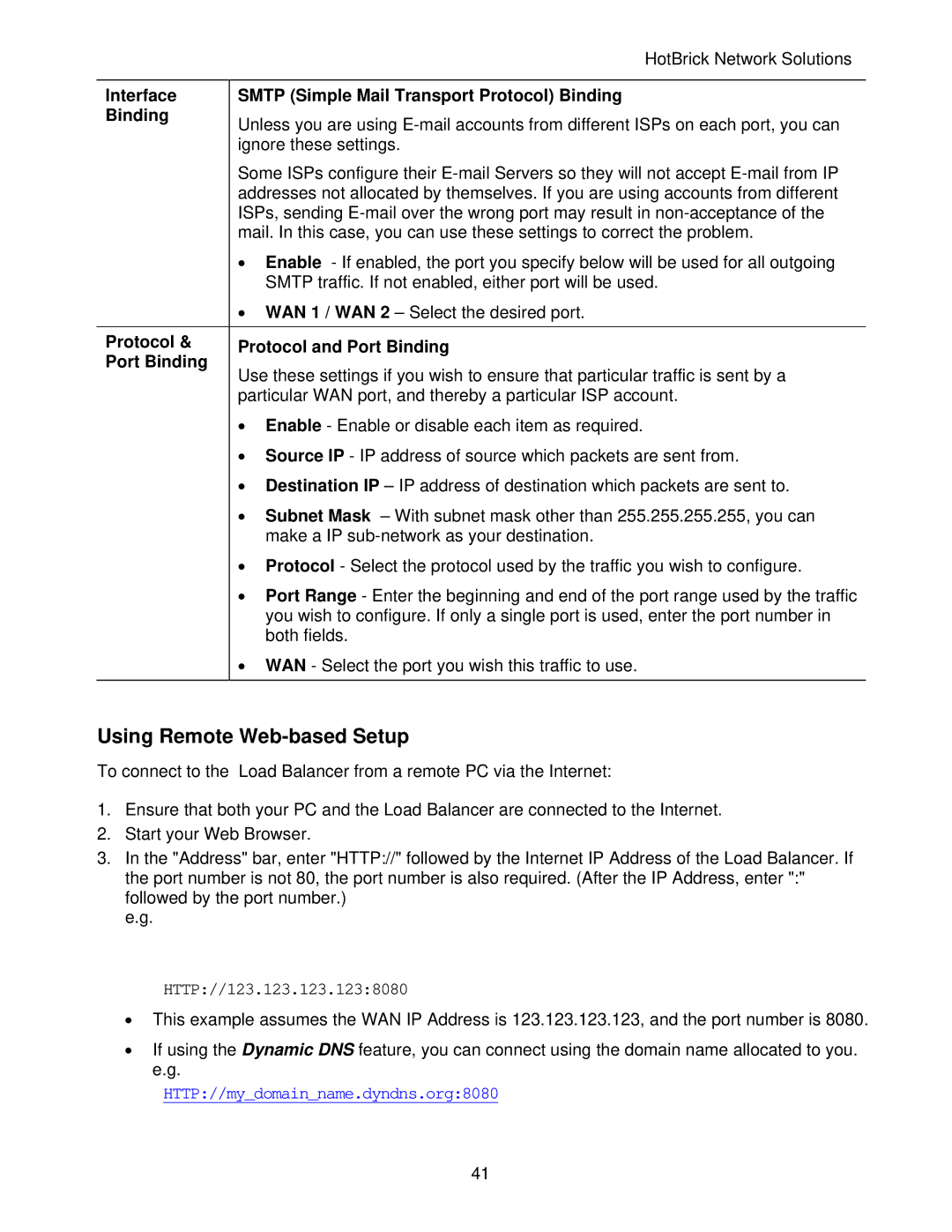HotBrick Network Solutions
Interface | SMTP (Simple Mail Transport Protocol) Binding | |
Binding | Unless you are using | |
| ||
| ignore these settings. | |
| Some ISPs configure their | |
| addresses not allocated by themselves. If you are using accounts from different | |
| ISPs, sending | |
| mail. In this case, you can use these settings to correct the problem. | |
| • | Enable - If enabled, the port you specify below will be used for all outgoing |
|
| SMTP traffic. If not enabled, either port will be used. |
| • WAN 1 / WAN 2 – Select the desired port. | |
|
| |
Protocol & | Protocol and Port Binding | |
Port Binding | Use these settings if you wish to ensure that particular traffic is sent by a | |
| ||
| particular WAN port, and thereby a particular ISP account. | |
| • Enable - Enable or disable each item as required. | |
| • Source IP - IP address of source which packets are sent from. | |
| • Destination IP – IP address of destination which packets are sent to. | |
| • | Subnet Mask – With subnet mask other than 255.255.255.255, you can |
|
| make a IP |
| • Protocol - Select the protocol used by the traffic you wish to configure. | |
| • Port Range - Enter the beginning and end of the port range used by the traffic | |
|
| you wish to configure. If only a single port is used, enter the port number in |
|
| both fields. |
| • WAN - Select the port you wish this traffic to use. | |
|
|
|
Using Remote Web-based Setup
To connect to the Load Balancer from a remote PC via the Internet:
1.Ensure that both your PC and the Load Balancer are connected to the Internet.
2.Start your Web Browser.
3.In the "Address" bar, enter "HTTP://" followed by the Internet IP Address of the Load Balancer. If the port number is not 80, the port number is also required. (After the IP Address, enter ":" followed by the port number.)
e.g.
HTTP://123.123.123.123:8080
•This example assumes the WAN IP Address is 123.123.123.123, and the port number is 8080.
•If using the Dynamic DNS feature, you can connect using the domain name allocated to you. e.g.
HTTP://my_domain_name.dyndns.org:8080
41
